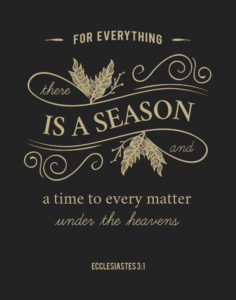Starting Over
John 21:15-19
Scripture Reading: John 21:1-14
Introduction
Last year for vacation we went to Port St. Joe, Florida, and we went to the beach as much as we could. One of the days I decided to build a sand castle. So I started to big and built layer upon layer of intricate sand sculptures. As my three oldest saw what I was doing, they made their way from swimming in the ocean and began to join me. Kimberly and Isaac (my five year old) had gone walking down the beach looking for seashells and to chase sea gulls.
With the smell of salt in the air, and the sound of crashing waves, the sand castle building project stretched out over 12 feet and we began to have roads to various buildings, there was a mote, and a lake in the middle where we dug down to water. The children took sticks and began to carve the shape of rocks in into sand.
It was a thing of beauty.
About a hundred yards off, Isaac saw our building project. In his five-year-old mind, he suddenly became a giant sea monster who was going to attack the tiny sand people – so he began to run with all his five-year-old strength toward the sand castle. Before we realized it, the sea monster was upon us and within seconds had stomped and knocked over our thing of beauty. All of our work seemed wasted.
What happens when we think about our lives, and things of more importance than a sand castle? What do we do when we like a sea monster have kicked over our marriages, when we have breathed fire all over our testimonies at work, or when we have stomped our ministries? What do we do when sin comes in and has wrecked something we greatly value? Is there any way to recover, does God hate us forever, does He leave us to suffer under the weight of our guilt for the rest of our lives?
Prayer – Jesus, show us a glimpse of your mercy and grace that you freely pour out upon your children. There are people here and within the sound of my voice who have fallen and in shame they now live under a heavy weight. Show us the truth of your Word this morning, and how we should then live – We pray this in Jesus’ name; Amen.
____________
Our story today begins at the trial of Jesus. Jesus had told Peter before that he would betray him three times before the rooster crowed. In John 18:26-27 “One of the servants of the high priest, a relative of the man whose ear Peter had cut off, asked, “Did I not see you in the garden with him?” 27 Peter again denied it, and at once a rooster crowed.” Peter emphatically said in Matthew 26:33, “Though they all fall away because of you, I will never fall away.”
As Peter stood and watched the trial, he heard the crowd yell, “crucify him!”, did he lower his head, did he cover his eyes? He followed him, in the crowd, out to Golgotha where he was crucified. Did he weep? How did Peter deal with this horrible event?
While he went through that horrific day of seeing his Teacher and dear friend tortured, he now also had to bear the crushing weight that he had betrayed Jesus. He had denied being his disciple of the man whom had loved him with an eternal love.
Peter was one of the twelve, one of the apostles, he sat at Jesus’ feet and heard all the sermons, and even went out from him to share the good news to others. He had heard Jesus say on multiple occasions, “So everyone who acknowledges me before men, I also will acknowledge before my Father who is in heaven, 33 but whoever denies me before men, I also will deny before my Father who is in heaven.”[1]
After the resurrection Jesus specifically appeared to the disciples two times in the Upper Room, and in today’s passage on a beach.
Do you have a time in your life where you have betrayed Jesus? Do you have a sin that when it comes to your memory, you drop your head and you feel the weight of regret and your betrayal to the one who has done nothing but pour out His love upon you? Do you put your head in your hands and cry out, “why did I do that?”
God does not want to leave us there – He desires to lift your head and for you walk in honor before Him. Psalm 3:3 “But you, O Lord, are a shield about me, my glory, and the lifter of my head.”
God was not going to leave Peter with this crushing weight of guilt. God does not want to leave you where you are; He wants to take the weight away. Jesus went to this beach to talk with Peter. God has come to you this morning and wants you to hear His Word.
Life for Peter was more than living in the guilt of the past, Jesus wanted to use him greatly now. This morning, in spite of all that we have done, God still desires to have a restored relationship with all of us, and to use us for His kingdom work. Would you like to just start over? How do we start over?
Remember Jesus Has Called You (v. 15)
15 When they had finished breakfast, Jesus said to Simon Peter, “Simon, son of John, do you love me more than these?” He said to him, “Yes, Lord; you know that I love you.” He said to him, “Feed my lambs.”
Peter was the leader of the disciples. He was the one who spoke on their behalf most of the time, and where he went the rest followed. Even, in this story he had said, “I’m going fishing,” and the rest followed.
Now, he has gone back to what he was doing before he ever met Jesus. Peter was called by God to preach and share the gospel – but now he has returned to what he knew before Christ. Fishing for Peter didn’t require spiritual courage, supernatural empowering, or steps of faith.
Matthew 4:18 “While walking by the Sea of Galilee, he saw two brothers, Simon (who is called Peter) and Andrew his brother, casting a net into the sea, for they were fishermen. 19 And he said to them, “Follow me, and I will make you fishers of men.” 20 Immediately they left their nets and followed him.” They were fishermen before Jesus called them to be disciples, so they go back to their previous life.
Jesus gave them a glimpse of how their lives could truly and genuinely make a difference in the world – They even had a season where Jesus had to guide them through this reality and their own sinful natures. Matthew 20:20-21 “Then the mother of the sons of Zebedee came up to him [Jesus] with her sons, and kneeling before him she asked him for something. 21 And he said to her, “What do you want?” She said to him, “Say that these two sons of mine are to sit, one at your right hand and one at your left, in your kingdom.” Peter had walked on water, and seen the transfigured Christ.
When Christians feel that they have betrayed Jesus, and are feeling crushed with guilt, they withdraw to what they knew before Christ. They return to their default setting. You naturally have a talent, skill set, gifting, interests, etc. that is built into your personality.
Satan’s ploy is to get believers out of service, out of worship, out of church, get them away from what they were created to do. He lies to them and persuades them that God really does not love them, or can use them anymore. He desires to pull them away from courage, empowering, or faith – he lies and says, “that’s just not your thing.”
When we live in this place, there is no peace. God loves us enough to not leave us there. So Jesus comes to Peterto take off this weight of guilt and to get him back on track.
When Jesus says, “do you love me more than these?” Who or what are “these?” Why the miracle of catching so many fish? If Jesus could just speak and let them know that it was Him. I believe that Jesus allowed them to catch a great number of fish, so that he can turn to them as say, “these (fish).”[2]
The large number of fish would have been worth a lot of money for the fishermen. So, Peter had returned to working as a fisherman, with a potentially lucrative amount of catch – and now a return to a calling by the resurrected Christ to go back to leading as an apostle.
He said to him, “Feed my lambs.” – Peter was not called by Jesus to be his disciple so that he could fish, he was to love Jesus more than anything else and do what Peter was created before the foundation of the world to do – “feed Jesus’ lambs” – to preach the gospel, “tend Jesus’ sheep” – take care of the people. Peter had a calling from the Lord, a very special task or ministry to accomplish – and so do you.
Remember that Jesus Knows Everything (vv. 16-17)
16 He said to him a second time, “Simon, son of John, do you love me?” He said to him, “Yes, Lord; you know that I love you.” He said to him, “Tend my sheep.” 17 He said to him the third time, “Simon, son of John, do you love me?” Peter was grieved because he said to him the third time, “Do you love me?” and he said to him, “Lord, you know everything; you know that I love you.” Jesus said to him, “Feed my sheep.
Why does Jesus ask Peter the question three times? It mirrors Peter’s three times of denial. Peter is grieved because Jesus keeps asking him “do you love me?” So Peter acknowledges that Jesus knows everything. Peter knows in his mind, and Jesus moves that knowledge to his heart by getting him to repeat it again and again.
Jesus knows everything. Jesus Christ is sovereign and omnipotent and in that he knows that we will deny him. He knows that we will fall into temptation, and sin.
John 13:36-38 “Simon Peter said to him, “Lord, where are you going?” Jesus answered him, “Where I am going you cannot follow me now, but you will follow afterward.” 37 Peter said to him, “Lord, why can I not follow you now? I will lay down my life for you.” 38 Jesus answered, “Will you lay down your life for me? Truly, truly, I say to you, the rooster will not crow till you have denied me three times.”
Jesus knows what we are capable of, the greatness of our sin and depravity. He can see into the future and knows all our mistakes, our stubborn times of rebellions, and denying him with our actions– and he says, “but you will follow afterward.”
Jesus knows everything. Jesus Christ is sovereign and omnipotent and in that he knows that we will serve him. That there will be moments when we shine and give the Father and the Son glory with our actions.
He sees into the future and knows all the time when we get it right, our obedient times of submission, and proclaiming him to the nations – and he says, “Feed my sheep” Do what I created you to do. Despite our stumbling or triumphs His love for us never wavers, it never changes. He also knows that we love Him.
Remember that Jesus Promises that You Will Finish Well (vv. 18-19)
18 Truly, truly, I say to you, when you were young, you used to dress yourself and walk wherever you wanted, but when you are old, you will stretch out your hands, and another will dress you and carry you where you do not want to go.” 19 (This he said to show by what kind of death he was to glorify God.)
Jesus had called him to be a disciple, had predicted that he would deny him, had told him that he would follow once more, and now he is telling him that he will die for Him. “When you are old . . .” Wherever he would fall along the way, in all the ways he would sin over the years, when it was all said and done – he would finish well.
This is not sentimentality, or some false way of trying to encourage Peter, Jesus says, “truly, truly . . .” At the end of his days on earth, Peter would glorify God. It is so encouraging to know that when we fail, Christ will come after us, and has promised that He is still at work in our lives.
Philippians 1:6 “And I am sure of this, that he who began a good work in you will bring it to completion at the day of Jesus Christ.” Then Jesus says to Peter, “And after saying this he said to him, “Follow me.”
In all three of the times where Jesus asks Peter, “do you love me” the question is preceded by, “Simon, Son of John” in verse 15 – there are only two places where Peter is called “Simon, Son of John” here, and when Jesus originally called him to be a disciple.
Matthew 4:18 “While walking by the Sea of Galilee, he saw two brothers, Simon (who is called Peter) and Andrew his brother, casting a net into the sea, for they were fishermen. 19 And he said to them, “Follow me, and I will make you fishers of men.” 20 Immediately they left their nets and followed him.”
John 1:40-42 “One of the two who heard John speak and followed Jesus9 was Andrew, Simon Peter’s brother. 41 He first found his own brother Simon and said to him, “We have found the Messiah” (which means Christ). 42 He brought him to Jesus. Jesus looked at him and said, “You are Simon the son of John. You shall be called Cephas” (which means Peter).”
By calling him “Simon, Son of John” and by saying to him “Follow me” Jesus is taking Peter back three and half years to when they first met, to the beginning. Peter, Let’s start over.
I remember the first time I met Jesus. I was a nine years old child who was afraid of dying. I remember telling my mother, “the Mormons believe this, and the Buddhists believe this – what is the truth?” “If someone dies, where do they go? Is heaven real?” I was afraid.
At VBS that summer the preacher came and shared the gospel to our class and asked if anyone wanted to talk more about salvation and eternal life to step into a side room. I put my craft down, pushed my chair back, and walked into the room. After, that day I have never feared death. I can tell you what decorations hung on the wall, what the room smelled like, who sat next to me, what I wrote inside the little paper box I made.
Do you remember when you first met Jesus? Do you remember the excitement and passion? Do you remember when you said things like, “Jesus, I will die for you!” “I will do anything you ask, I will go anywhere you say!” Do you remember the joy of your salvation?
But time passes, years go by, life happens, and perhaps today Jesus desires to take you back to that day. Years of guilt and feelings of failure have caused you to drift away from your calling. This morning, hear the truth of God’s Word, and lay your weight at the foot of the cross. Jesus died, so that you can be set free.
__________
Isaac, after the sun was beginning to hide behind the horizon, as we sat on the beach, asked “can we build a sand castle?” So there among the piles of sand that he had destroyed, we began to rebuild castles, as a family.
Jesus is waiting for you this morning to say, “Jesus I want to start again, I want to rebuild.” He has told us in His word the answer will always be, “yes my precious child, let’s rebuild.” Lay the weight of guilt at the foot of the cross, and say to Jesus, “I want to start over.” Do it today, do it right now. You don’t have to live with the weight any longer.
1 John 1:9 “If we confess our sins, he is faithful and just to forgive us our sins and to cleanse us from all unrighteousness.”
_______________________
[1] Matthew 10:33
[2] Clifton Allen, General Ed., The Broadman Bible Commentary, Volume 9, Luke-John (Nashville, Tennessee; Broadman Press, 1970) 374.

 ***There is a sermon link at the bottom of this page from a sermon I preached on Ecclesiastes 3, a few years ago.
***There is a sermon link at the bottom of this page from a sermon I preached on Ecclesiastes 3, a few years ago. Churches and businesses are drawing close to the time when they will begin to gather and open in groups once again. Pastors, staffs, and business owners are going to make decisions regarding reopening their doors and gather in groups. While they have gained new ways of doing things (Zoom meetings, social distancing, sanitizing, etc.) its’ natural tendency is to go back to “normal” — but they are in a day that their “old normal” just can not continue. Churches and businesses have to change, but it is the vision of the organization that will allow it move through these unknown and treacherous times.
Churches and businesses are drawing close to the time when they will begin to gather and open in groups once again. Pastors, staffs, and business owners are going to make decisions regarding reopening their doors and gather in groups. While they have gained new ways of doing things (Zoom meetings, social distancing, sanitizing, etc.) its’ natural tendency is to go back to “normal” — but they are in a day that their “old normal” just can not continue. Churches and businesses have to change, but it is the vision of the organization that will allow it move through these unknown and treacherous times.

